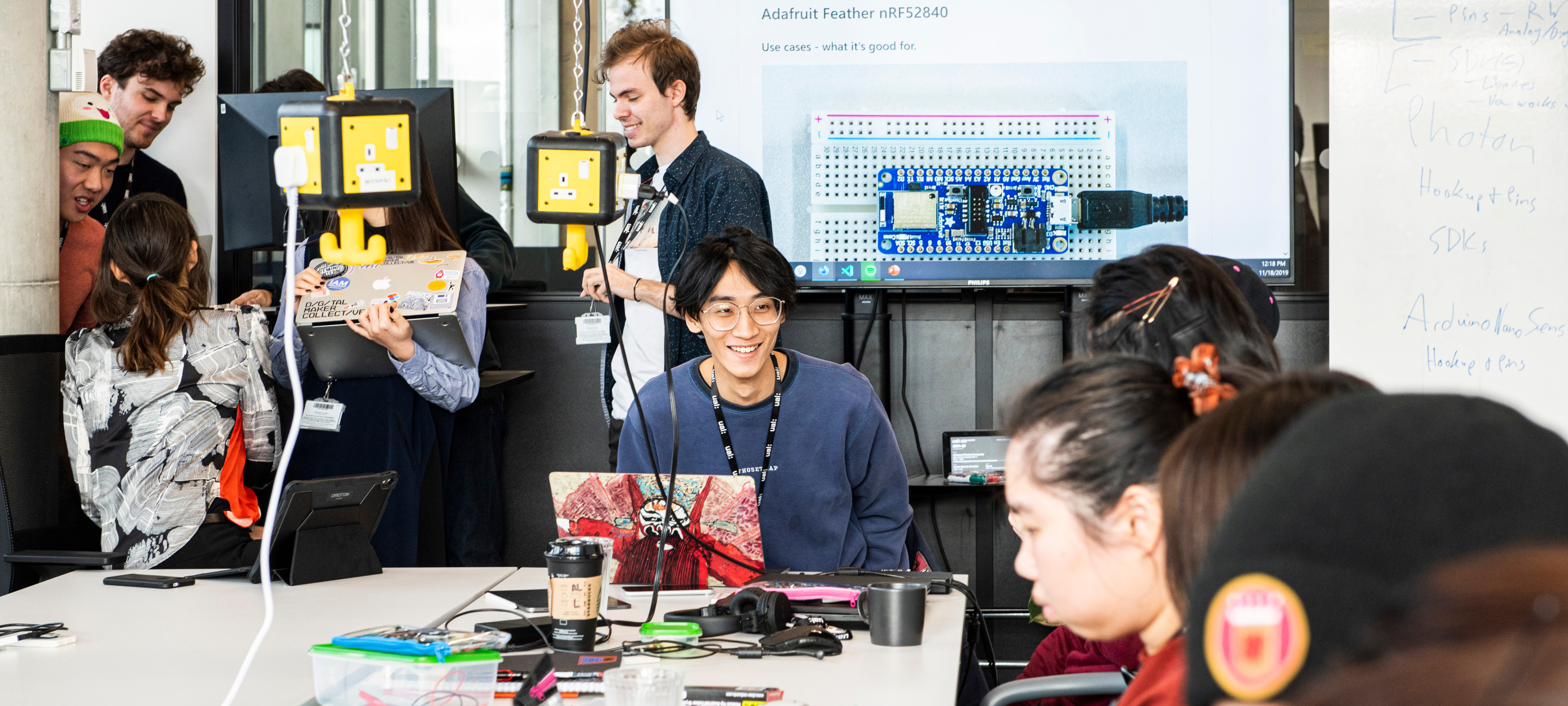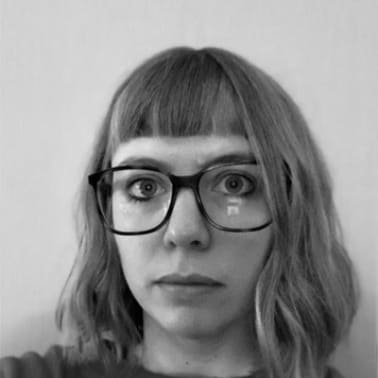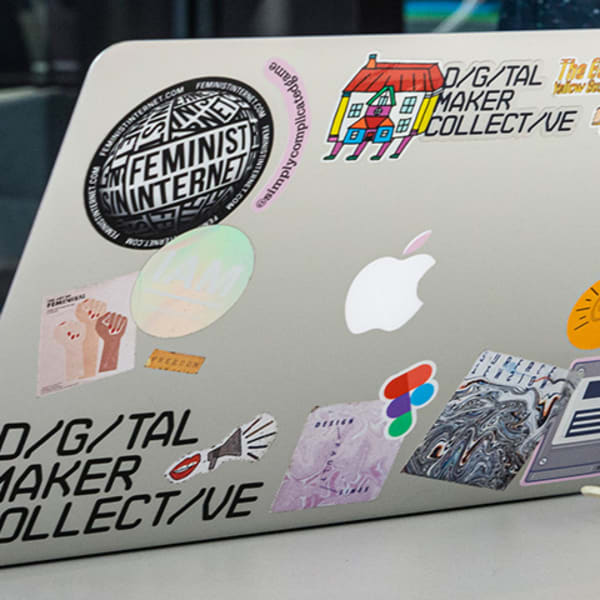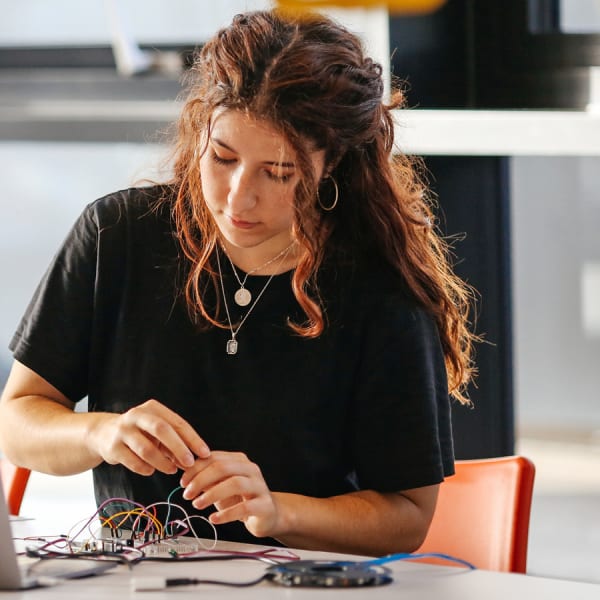Course units
The units on this course are designed to give you an intensive introduction to creative computing practice. We encourage you to develop in your capacity as interdisciplinary practitioners with a firm foundation in the key theories, methods and technologies required to develop as a creative and critical technologist capable of intervening in socio-technical problems.
Each term takes you through explorations and applications of creative computing practice at different scales. From prototyping physical and digital interfaces to using machine learning for creative investigations and industry-led brief, we will teach you how to use creative computing to reshape and resituate the focus of your practice.
Term 1: Foundations (40 Credits)
The first term of the Diploma introduces you to key theories, methods and frameworks relevant to creative computing practice. Designed as a series of 'sprints', this unit develops your skills against specific programming languages and computational tools in an intensive fashion. You will receive technical sessions that establish core physical computing and fabrication skills as well as programming skills for interactive web and media projects. Interdisciplinary contextual lectures will introduce you to foundational theories from across the sciences and humanities, focusing on the themes and debates driving modern developments in Artificial Intelligence, Robotics and Cognitive Science. You will explore the socio-technical makeup of contemporary scientific practices through an applied approach to computational programming.
Term 2: Applications (40 Credits)
This unit develops your practice by extending your programming knowledge to encompass more advanced techniques in machine learning, as well as encouraging you to apply your knowledge through explorations of computational infrastructure and remote sensing instruments. Key to this unit is the development of creative practice through an investigative lens. Students will be encouraged to use computational technologies as part of an investigative method, highlighting the roles of practice-based design research to generate insights into macrosocial issues such as climate breakdown, race and class inequality and political polarization.
Term 3: Situations (40 Credits)
This unit is designed to situate your practice in response to emerging graduate opportunities and industry practices. Working collaboratively in studios and collectives, you will respond to briefs aligned with industry trends across different sectors and receive feedback from professionals across those verticals. You will be encouraged to reflect upon the direction you wish to take your practice upon returning to your home course as well as outlining the graduate opportunities that you are working towards. Industry experts associated with the course range from professionals working at design consultancies and in new media art contexts to museum curators and policy advisors.






